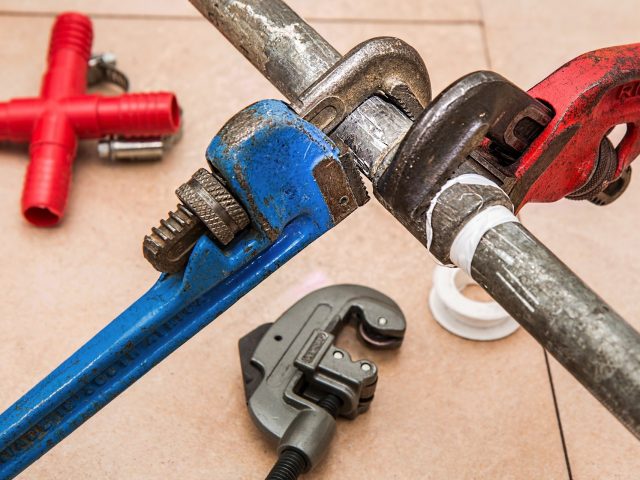Most of us dream of having a home someday. There are a lot of factors that come into play on homeownership. It takes effort, hard work, determination, and planning to acquire the home of your dreams.
Buying a home is a long-term investment, and you should make careful evaluations before making your choice. Have a vision for what type of home you want. As a first-time buyer, it may be confusing if you don’t know where to begin.
The decision to buy a home is arrived at through consideration of current affairs and other market forces at play. Deliberate on your decision to purchase and ensure that you are ready to own a home.
A thousand-mile journey begins with a single step. Here are some tips to help with your first-time home purchase.
Know the Market
It is imperative to know the state of the market and understand a few concepts about real estate. Your decision to purchase your home makes you a real estate investor. In this case, you should understand your investment and ensure it’s viable.
Beforehand, you should evaluate the market cycles to make a sound home-buying decision. Some of the driving aspects involved in the market evaluation are:
• Industrial Growth; Creation of industries guarantees availability of employment. Areas that record growth in the job market attract investments and labor. Industrial growth invokes the need for real estate investments, and thus the prices of properties will vary.
• Population growth; Highly populated areas require more residential properties. Cities with high population will have higher property market values than low populated areas.
• Price Range; Various markets will have a range or rate in terms of property costs. You should check out the cost rates of different markets for affordability.
The location will also play an imperative role in determining the cost and quality of properties on the market. Real estate markets in the suburbs or inside major towns and close to significant infrastructure tend to offer high property prices and vice versa. Having useful knowledge about the market will propel you towards affordable home options.
Having Good Credit
You may opt for lenders to help you finance your home finding escapades. With the ongoing global pandemic, the world is at risk of economic recession. The recession may affect lending rates and may influence the lending standards from most lenders.
However, most lenders will look at your credit rating to determine your ability to repay debts. Applying for the right mortgage amount will require you to have a credible credit rating. A good credit rating will be beneficial when buying a home in these few ways.
• Higher chances of mortgage approval; With a good credit score, you can expect your mortgage application to go through. An excellent credit score will prove your ability to repay the mortgage.
• Fast approval; Your credit score will determine how fast you get approved for the loan amount. A good credit score may ensure that your loan gets fast approval.
• Increased loan amount; It is easier to get approved for the loan amount that you applied for with a good credit rating.
You can also improve your low credit score through ways such as:
• Paying your bills on time and getting credit for making timely utility bill payments.
• Keeping balances low on your credit card.
• Applying for new credit accounts only when needed.
• Clearing all the arrears on your credit card.
• Keeping unused credit accounts open and using them once in a while.
However, your credit score will not be required when buying your home in cash. If you’re not looking to apply for a mortgage loan, your credit rating shouldn’t be a determinant when buying a home.
Having a 20% Down Payment vs. PMI (Private Mortgage Insurance)
When it comes to making payments, you can choose to work with a 20% down payment or private mortgage lender. With PMI, you can access a house more quickly since you are allowed a down payment of less than 20%.
Private mortgage insurance also provides you with flexible payment options for your house. Working with less than 20% down payment ensures that you don’t drain your saving accounts and minimize exposure to financial risk. PMI allows you to keep more money as you don’t have to put all your finances in the home purchase.
Financing your home through PMI allows you to prepare for unseen expenses and plan for emergencies that may require cash and avoid sinking in debt.
Perversely, putting down more on your house purchase (20% down payment) ensures that you take on less debt and help you increase your chances of mortgage approval. Also, it reduces your borrowing risk and can enable you to acquire a lower interest rate from the lender.
Making a higher down payment also lowers your monthly mortgage payment installments. Having a 20% down payment means that you don’t have to pay PMI. Impending recession may make a 20% down payment a suitable option due to the risk of increased interest rates from lenders.
Hiring a Good Realtor
A real estate agent will provide much assistance and help you find the home of your choice, especially if it’s your first time. You should, therefore, find a realtor with the commitment to help you find your dream home. Before you can hire a real estate agent, consider these few factors.
• Experience; You should hire a realtor who has relevant experience in the real estate market. Find a real estate agent that understands the ins and out of the market. A knowledgeable realtor will help with crucial market information and find an affordable option.
• Personal preferences; Know what you want before you approach the realtor. Explain your choices to the realtor who will work tirelessly to find properties that match your criteria. Present your budget plans to the realtor so that the realtor can find properties within your price range.
• Negotiation skills; Hire a good negotiator for a realtor to help you bargain on your prospect home. A realtor should possess excellent communication and negotiation skills. These skills will be vital in brokering a deal for your home.
Have an Inspection Done
Before you can purchase any property, it is advisable first to consult a home inspector. The home inspector will conduct an in-depth analysis of the property and provide a detailed report. The home inspector’s report will entail the status of the home condition and reveal any hidden problems.
The home inspector’s evaluation can also help determine the value of the home and provide useful negotiation information. A home inspection will guarantee the integrity of the house’s structure and condition of the home installations.
A home inspection will help you unearth any issues with the house that may cost you later. It will boost your confidence in the property and influence your purchasing decision.
A Realistic Budget
You should ensure that you have enough financial resources to buy the home. In this case, you should plan on your budget to determine whether you can afford the housing unit. Take time to carry out research more about the market and come up with a realistic budget.
The budget will help you determine whether you have enough cash or whether you’ll need to apply for a mortgage loan.
Get Your Dream Home
Buying a home for the first time will be a non-challenge if you follow the right guidelines. Keep an eye out for deals that may appear too good to be true. You should weigh all your options and make an investment that you won’t regret.
Find a property unit that you would be proud to call home.



